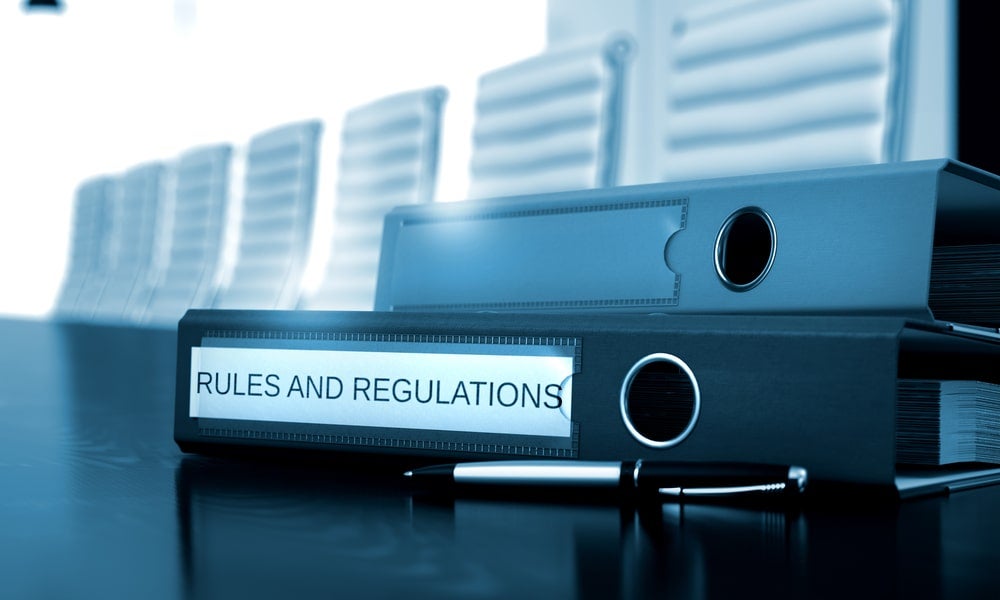How to use regulatory technology to get deregulation right
The use of regulatory technology by both regulators and the regulated requires a deep understanding of its underlying fundamentals, writes UNSW Business School’s Rob Nicholls
One of the key Federal Government policies in “the bridge” to the new normal on the other side of the coronavirus crisis is deregulation. The challenge is deregulating without exacerbating the harms that regulation was designed to minimise.
Regulation is usually imposed to protect something or some group of people from perceived or actual harm. As a practical matter, the regulatory burden on businesses tends to grow in layers over time. That is, when additional changes and protections are required, they are added to the regulatory requirements rather than replacing existing ones.
Deregulation requires a holistic view in order to be able to understand which of those regulatory layers are critical for protection and which can be removed or replaced with a lower regulatory obligation. To do this work at the speed required in order to promote economic growth requires a deep understanding of both the regulated businesses and the evidence-based theory of regulation. It also requires a mindset that can foresee the potential unintended consequences of candidate deregulatory actions.
Training the regulators and the regulated
Much of the work done by regulators and regulated is based on core theory and on-the-job training. This is supplemented by the work done on an international basis by groups of regulators such as the International Competition Network and International Organization of Securities Commissions (IOSCO).

One of the rapidly changing aspects of regulation has been the rise of regulatory technology (regtech). Although regtech began in the financial services sector, it is being adopted in other areas. The major application of regtech is as a tool for regulatory compliance, rather than for regulatory enforcement. Regtech has the potential to provide regulators with the opportunity to investigate a level of granularity in risk assessments that previously did not exist. Regtech can be used to great effect within the regulatory context and has the potential to provide significant cost savings.
Regtech in its simplest form can be described as “the use of technology, particularly information technology, in the context of regulatory monitoring, reporting and compliance” enabling it to provide “technological solutions to regulatory processes”.
In many business sectors, prescriptive and complex regulations have caused an increase in costs for both the regulated and the regulators. Business reporting is required to respond to complex regulations that necessitate increased precision and frequency in reporting and analysis. By automating these processes there should, in theory, be fewer errors made, and so regulatory actions and penalties should be more limited.
Regtech has the potential for continuous monitoring capacity with close to real-time insights of domestic and global markets through artificial intelligence filters, it can be proactive rather than reactive, looking to identify problems in advance rather than after the fact.
However, the use of regtech by both regulators and the regulated requires a deep understanding of its underlying fundamentals.

Demand for data
Businesses create and curate data in their usual operations. Regtech can assist by enabling a ‘compliance by design’ framework permitting regulators to engage in automated monitoring of compliance standards set and intended by them; that is, the dashboards created for managing businesses can also be used to ensure compliance with appropriately designed regulations.
One of the most crucial benefits of deregulation is ensuring that businesses do not need to create reporting structures that have the sole purpose of meeting a regulatory burden.
In compliance, there are difficulties associated with the use of technology. Those who have the knowledge to develop the technology may not have the understanding of regulation required to implement it. In enforcement, these challenges fall away. The challenge that remains is a technical one. It requires regulators to understand how technology arrives at a particular conclusion.
Demand for skills
One of the challenges for both regulators and regulated as employers, is being able to select candidates who can deal with both regulation and regtech. Relying on core knowledge combined with on-the-job training works well, when there is a cohort of employees at the same level (for example, recent graduates). However, it becomes more challenging at different career transitions, particularly in the move to management roles or from management to leadership. There are no external benchmarks that can be used as a key performance indicator for progression.

The effect of this is that there is a risk that more senior staff members will not have the fundamental understanding of either regulation or regtech at the time that they are called upon to manage tasks or to lead projects that rely on these core skills.
Meeting the deregulation challenge
UNSW has developed a new graduate certificate program to provide students with the skills needed to manage regulation, governance and compliance from the perspective of both regulator and regulated. People studying the program will learn to identify key risks within regulated businesses and understand the challenges of both regulating and complying with the changes associated with deregulation.
The program offers students an opportunity to enhance their credentials or to cement their postgraduate on-the-job training with a formal qualification. Importantly, the program can be completed in six months. In regulated industries, regulatory compliance has become a distinct specialisation in governance, and risk management. The graduate certificate is a formal qualification in that specialisation.
The postgraduate program was designed by academics who have worked for regulators, professional advisers and the regulated. It is based on real case studies and the emerging challenges facing regulators and the regulated. It specifically addresses the deregulatory policy settings in a post-pandemic environment.
Rob Nicholls is an Associate Professor in the School of Taxation & Business Law at UNSW Business School. For more information please visit the Graduate Certificate in Regulation, Compliance and Governance site or contact Rob Nicholls directly.
